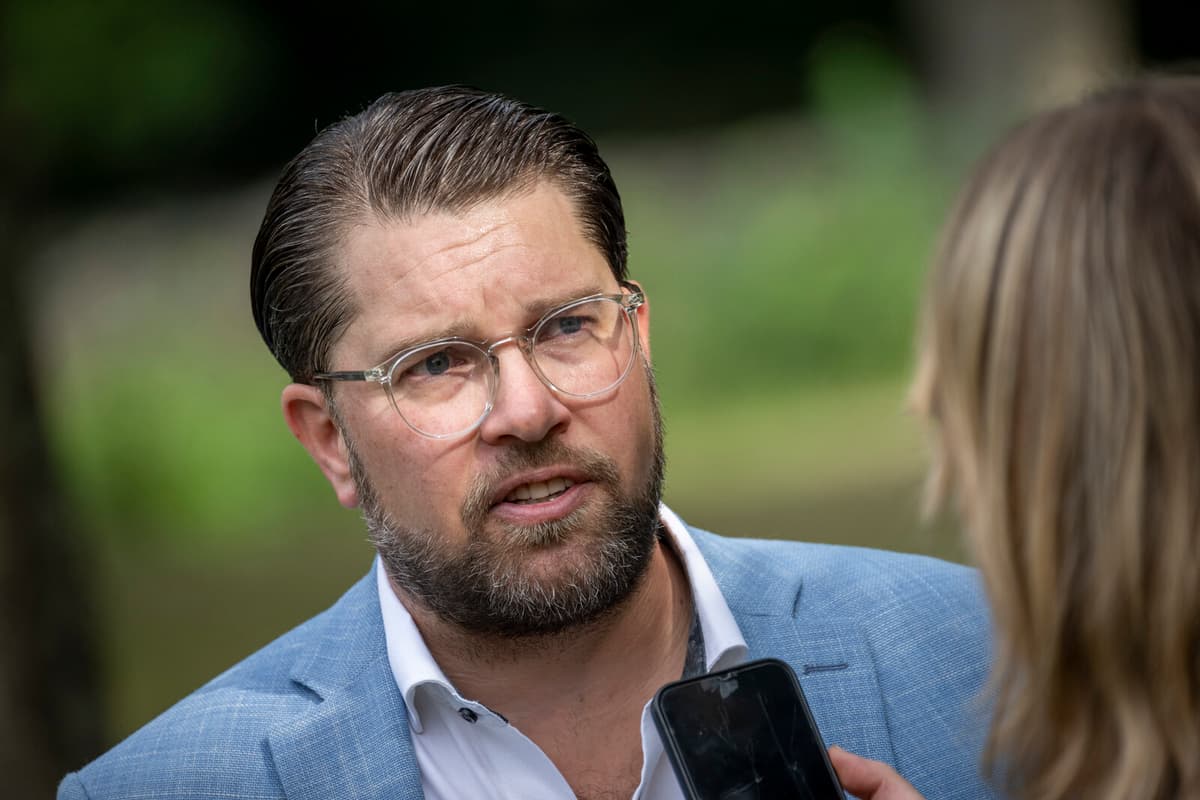For the first time, the Sweden Democrats are not running as a party in the church election, but under the nomination group Sweden Democrats in the Church of Sweden (SDSK).
This means that Jimmie Åkesson (SD) has not had any direct influence over which issues the association has chosen to pursue, but not that he considers the election unimportant.
“Wrong side of history”
I vote in the church election because I think it's important to have a Sweden Democratic voice in perhaps the most important administrator of our cultural heritage, and I don't want to leave it to the Social Democrats.
The SD leader himself believes that the church has become politicized due to the "Social Democratic power apparatus", and mentions the conflict between Israel and Palestine as an example.
I think the Israel-Palestine issue is the most obvious example where the church has taken the completely wrong side of history, says Åkesson, who believes that the "secular" belongs to elected politicians.
Up to the church
The Social Democrats' party secretary Tobias Baudin is of a completely different opinion and believes that it must be up to the church to decide for itself.
If the members are not allowed to participate and decide, who should then decide? It would be an unfortunate development if the church never gets to say anything that bothers Jimmie Åkesson.
He also mentions the worship service for those affected in Gaza, which was followed by a national extended bell ringing, as an important issue.
That must be owned by the church itself. I have seen that some went out and commented on this. There should not be someone who decides when the priest is allowed to ring the church bells. I know that there are forces that want to go in and control it, but that goes too far.
Bleak times
For the Social Democrats, who are running as a party, the election is about values, says Baudin. As examples of important values, he mentions same-sex marriage, the abortion issue, and the inclusion of LGBTQI people.
What is at stake is whether we will have a closed church that sets group against group, or an open church that helps people in difficult times and contributes to hope, not least in these times that can feel bleak and dark.
In the church election, it will be decided which 251 members will be elected to the church meeting, which is the Church of Sweden's highest decision-making body.
At the same time, elections are held to the diocesan council and the church council, which govern the 13 dioceses and 1,316 parishes in Sweden and 31 parishes abroad.
All who are members of the Church of Sweden, have turned 16 and are registered in Sweden, almost five million people, have the right to vote.
Advance voting can take place throughout the country from September 9 to and including election day, September 21.
In the election to the church meeting, 546 nomination groups are running. Some of these bear party names, some have historical connections to the parliamentary parties, and some call themselves non-political. A total of more than 25,000 candidates are running in the church election.
The majority of the Church of Sweden's members usually abstain from voting. In the last church election, 2021, 18.4 percent voted, which was the second highest since the 1930s.
Source: Church of Sweden






